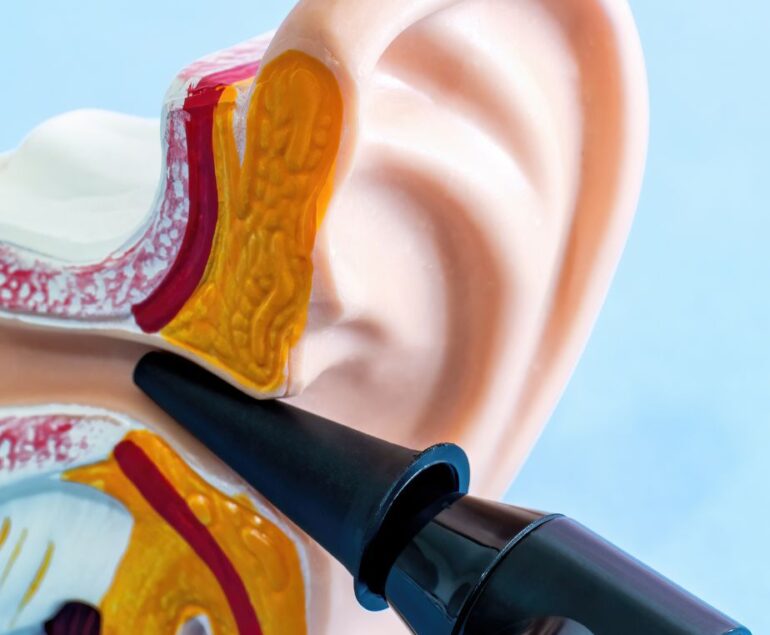Sleep is a fundamental aspect of our overall well-being, influencing various bodily functions and systems. As an ENT surgeon, I’ve witnessed firsthand the profound impact that sleep can have on ear, nose, and throat (ENT) health. In this blog post, we’ll delve into the crucial relationship between sleep and ENT health, exploring how adequate sleep contributes to recovery and optimal functioning of the ENT system.
Introduction: The Significance of Sleep in ENT Health
Sleep plays a vital role in allowing our bodies to rest, repair, and rejuvenate. For individuals with ENT issues, quality sleep is particularly essential as it directly impacts the respiratory system and the health of the throat, nose, and ears.
Understanding the Basics of ENT Health
Before delving into the connection between sleep and ENT health, it’s important to grasp the fundamentals of ENT health. The ear, nose, and throat are interconnected systems responsible for functions such as hearing, breathing, and swallowing.
The Connection Between Sleep and ENT Health
How Sleep Impacts the Respiratory System
During sleep, the body undergoes various physiological changes, including alterations in breathing patterns. Disrupted sleep can lead to issues such as obstructive sleep apnea, a condition characterized by pauses in breathing during sleep, which can significantly affect ENT health.
Effects of Poor Sleep on ENT Conditions
Poor sleep quality has been linked to a myriad of ENT conditions, including snoring, sinusitis, and ear infections. Chronic sleep deprivation can weaken the immune system, making individuals more susceptible to infections and exacerbating existing ENT issues.
Common ENT Issues Affected by Sleep
Snoring and Sleep Apnea
Snoring is often a symptom of obstructive sleep apnea, a serious condition that can lead to cardiovascular problems and daytime fatigue. Addressing sleep disturbances is crucial in managing these conditions and promoting overall health.
Sinusitis and Nasal Congestion
Individuals with chronic sinusitis often experience worsened symptoms at night, leading to disrupted sleep patterns. Proper management of nasal congestion and sinus inflammation is essential for improving sleep quality and ENT health.
Ear Infections and Hearing Loss
Sleep disturbances can compromise the body’s ability to fight off infections, including those affecting the ears. Chronic sleep deprivation may also contribute to hearing loss, underscoring the importance of prioritizing sleep for optimal ENT health.
Tips for Improving Sleep for Better ENT Health
Sleep Hygiene Practices
Establishing a consistent sleep schedule, creating a relaxing bedtime routine, and optimizing the sleep environment can significantly improve sleep quality and support ENT health.
Positional Therapy
For individuals with sleep apnea or snoring, positional therapy techniques, such as sleeping on the side instead of the back, can help alleviate symptoms and reduce the risk of complications.
Seeking Professional Help
Consulting with a healthcare provider, such as an ENT specialist or sleep medicine physician, is crucial for accurately diagnosing and treating sleep-related ENT issues. From conducting sleep studies to prescribing appropriate therapies, healthcare professionals play a vital role in optimizing sleep and promoting ENT health.
The Role of Sleep in ENT Surgery Recovery
Quality sleep is paramount for successful recovery following ENT surgery. Adequate rest allows the body to heal effectively, minimizing post-operative complications and expediting the recovery process.
Conclusion
In conclusion, sleep plays a pivotal role in maintaining optimal ENT health and facilitating recovery from ENT-related issues and surgeries. By prioritizing sleep hygiene practices and seeking professional guidance when needed, individuals can safeguard their ENT health and enjoy a better quality of life.
FAQs
- How many hours of sleep are recommended for optimal ENT health?
- Ideally, adults should aim for 7-9 hours of sleep per night to support ENT health and overall well-being.
- Can sleep apnea worsen existing ENT conditions?
- Yes, untreated sleep apnea can exacerbate conditions such as snoring, sinusitis, and ear infections, highlighting the importance of addressing sleep disturbances promptly.
- Are there specific sleep positions that can alleviate ENT symptoms?
- Sleeping on the side can help reduce snoring and alleviate symptoms of sleep apnea by preventing the collapse of the airway during sleep.
- How can I improve nasal congestion for better sleep?
- Using saline nasal sprays, using a humidifier, and avoiding allergens can help alleviate nasal congestion and improve sleep quality.
- Is surgery always necessary for treating sleep-related ENT issues?
- Surgery is not always the first-line treatment for sleep-related ENT issues. Non-invasive therapies, lifestyle modifications, and medication may be sufficient in many cases.
About Author:
Dr. Vivek Kumar Pathak: Renowned ENT Surgeon, Senior Professor, and Founder.
Dr. Pathak, ENT surgeon at Kailash Hospital, Senior ENT Professor at Sharda University, and founder of Entegrity Care, brings expertise and innovation to healthcare. Discover the visionary behind Doxtreat Healthcare, shaping the future of ENT care.
Website www.drvivekpathak.com
Call +917838450942
WhatsApp +91 78384 50942
Book an appointment with Dr. Vivek kumar Pathak by filling the form.




